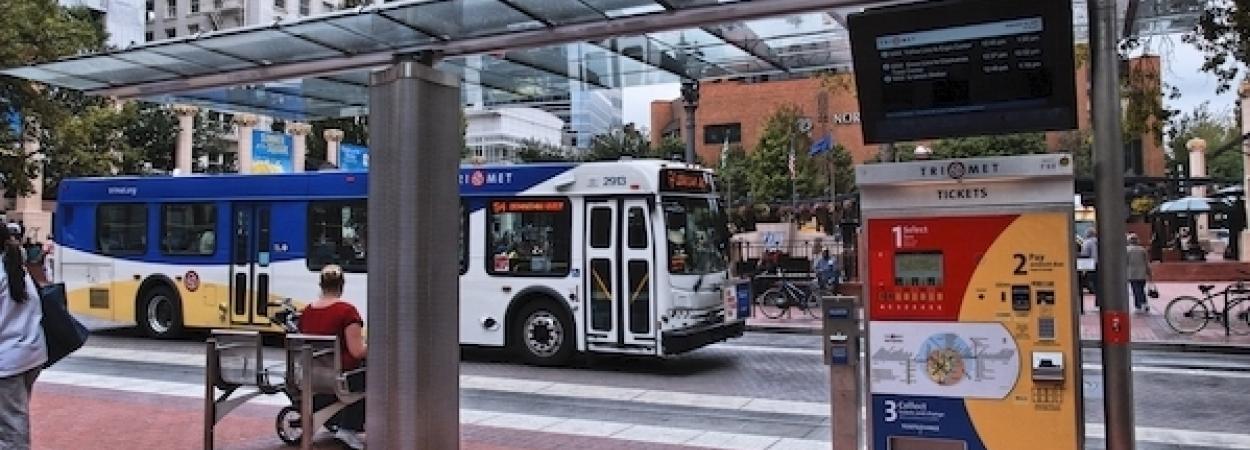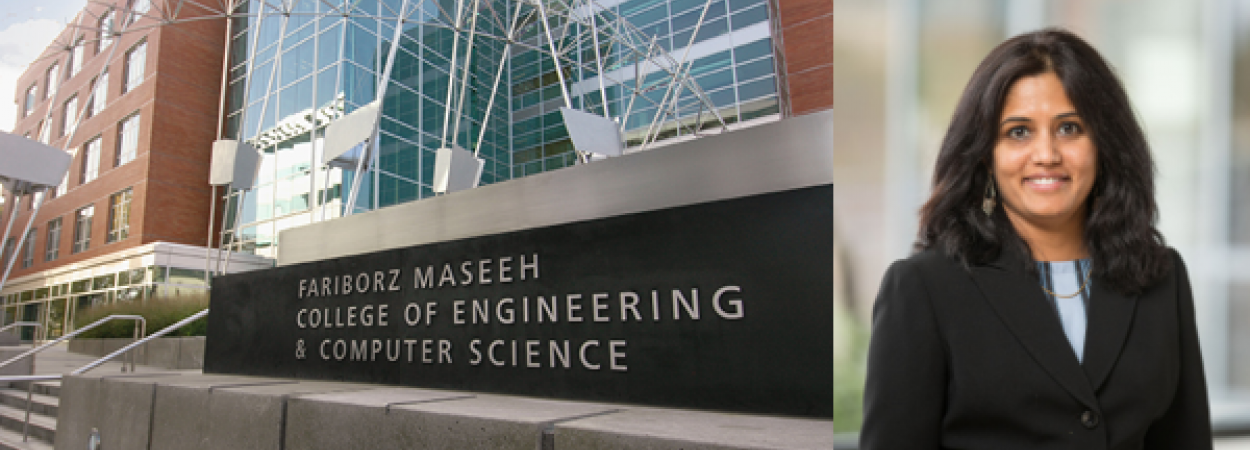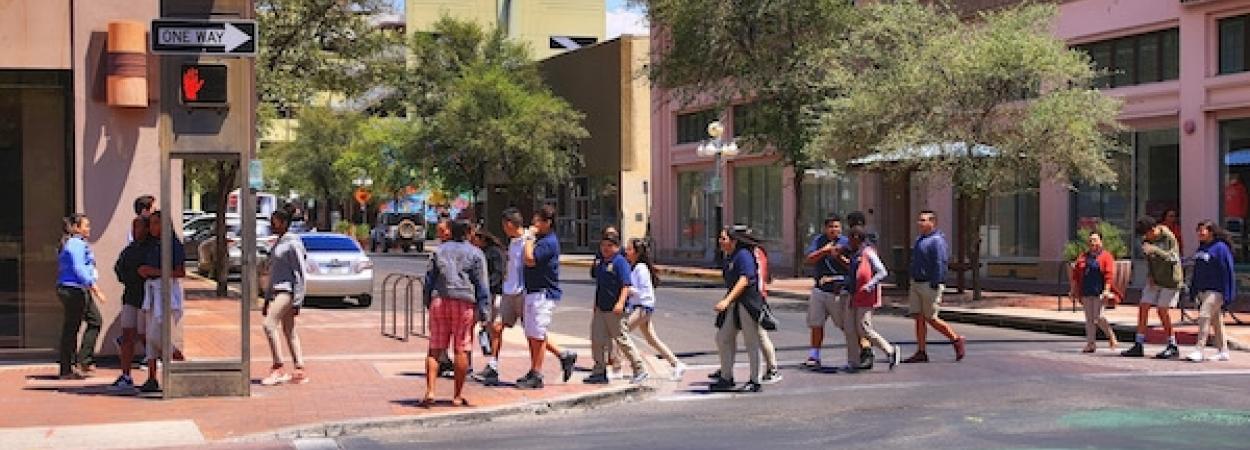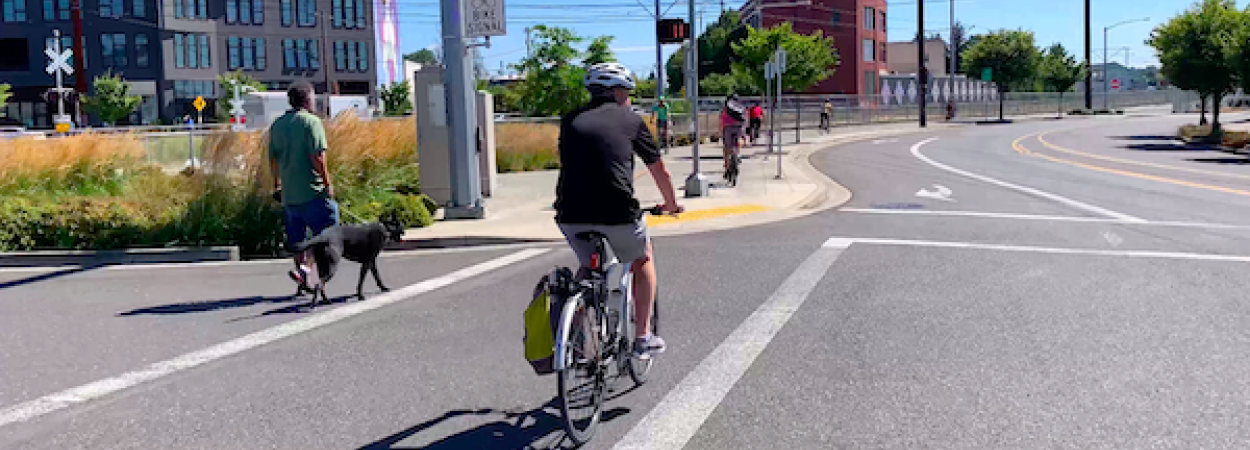 |  |  |

If you could securely pick up your packages on your commute by public transit, from any carrier—be it USPS, FedEx, UPS or other companies, would you? Transit agencies could be missing a potential strategy to increase ridership by offering common carrier parcel lockers at transit facilities.
Mitigating the demands on our urban transportation networks by consolidating parcel deliveries at high trafficked transit facilities could also benefit retailers, logistics and carrier companies, and consumers. But how do we ensure the equitable distribution of these sites for disadvantaged populations, while keeping accessibility in mind?
Using real world data from the Portland, OR region, a new study from researchers at Portland State University (PSU) offers a multiple-criteria approach using accessibility and equity metrics, including ridership, mode of transportation, spatial distribution, and sociodemographic profiles of coverage areas.
Read MoreLimit…

We're proud to announce that Dr. Sirisha Kothuri, Senior Research Associate at Portland State University, has been awarded the 2021 Research Professional of the Year award by the Association of Pedestrian and Bicycle Professionals (APBP). The APBP Professional of the Year Awards recognize the achievements of pedestrian and bicycle professionals made in the last twelve months in the private, public, research, and nonprofit sectors.
Dr. Kothuri’s contributions to advance the state of practice in bicycle and pedestrian safety research are outstanding. She has worked to inspire the next generation in our field and advance the professional knowledge of others through research around multimodal traffic operations, bicycle and pedestrian counting, and safety, with an emphasis in innovation in non-motorized transport.
The Transportation Research and…
Read More
"Transformative Transportation Survey Methods: Enhancing Household Transportation Survey Methods for Hard-To-Reach Populations," is a new article published in the September 2021 issue of Transportation Research Part D. It was co-authored by Amy Lubitow, a sociology faculty member at Portland State University, Erika Carpenter, a sociology graduate student, and Julius McGee, a faculty member in urban studies and planning.
The study explores the challenges that hard-to-reach populations face in completing household activity surveys. Researchers drew on qualitative data from hard-to-reach populations regarding the limits of the Oregon Household Activity Survey and f…
Read More
How can we use a variety of data-driven speed management strategies to make transportation safer and more efficient for all modes–whether you’re driving, walking or taking transit?
The project was led by Yao Jan Wu, director of the Smart Transportation Lab at the University of Arizona. Co-investigators were Xianfeng Terry Yang of the University of Utah, who researches traffic operations and modeling along with connected automated vehicles, and Sirisha Kothuri of Portland State University, whose research has focused on improving signal timing to better serve pedestrians. Join them on Sept 15, 2021 for a free webinar to learn more.
"We want to improve mobility for all users, be it pedestrians, vehicle drivers or transit riders, and there are different strategies to do this. How do we harness data to drive us to these strategies?" Kothuri said.
Funded by the Natio…
Read More
Interested in active transportation research? What’s been done? What should be done?
We’re excited to share the release of the Research Roadmap for the American Association of State Highway and Transportation Officials (AASHTO) Council on Active Transportation (CAT). The Roadmap was created to foster research that will address important active transportation needs at the state DOT level and beyond.
Funded by the National Cooperative Highway Research Program (NCHRP), a team of researchers from the Transportation Research and Education Center (TREC) at Portland State University (PSU) and Toole Design prepared the Research Roadmap over the past 18 months. They reviewed existing and on-going active transportation research, identified key research needs from a wide range of sources, and held outreach activities with practitioners to refine and prioritize those needs.
The project offers guidance on where active transportation research has bee…
Read More